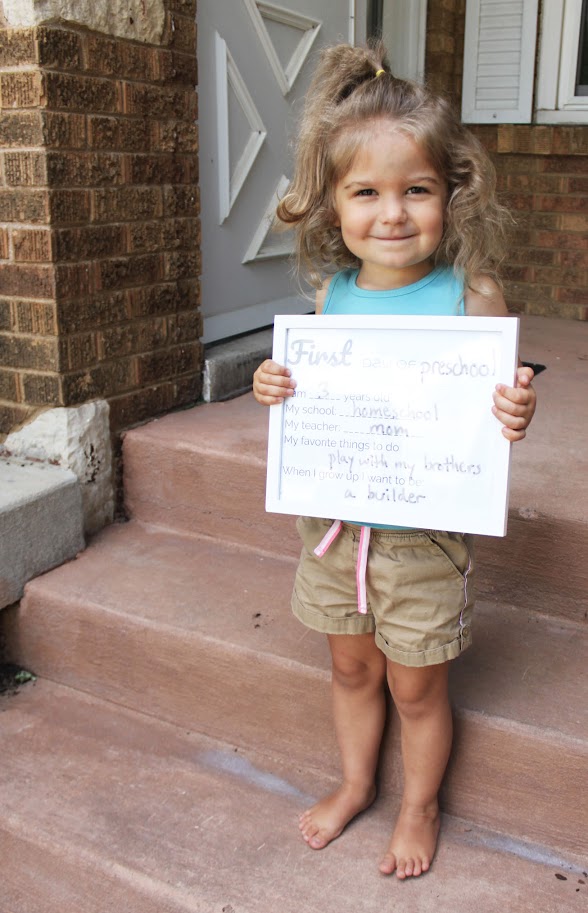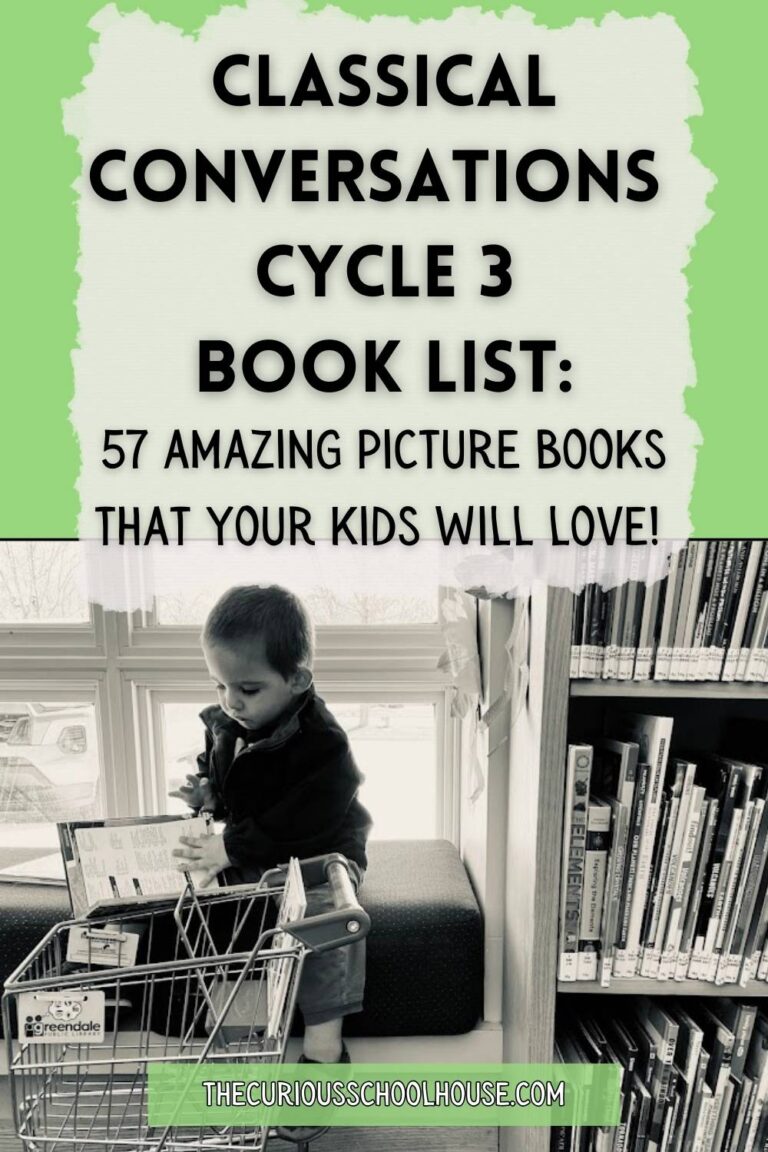3 Simple Ways to Encourage Curiosity
This post shares three simple ways to encourage curiosity in our children, with examples from our own homeschool. Encouragement for homeschool moms that your child’s natural curiosity is a valuable asset to nurture!
I recently finished reading Walter Isaacson’s biography of Leonardo Da Vinci and it was wonderful. Well-written biographies are gripping not because you learn a pile of facts about some famous person, but because you come to see them as a person. You see the story of their failures, triumphs, ups and downs, and get a sense of their character and personality. You can see areas of their life that you might want to emulate and others that you definitely don’t.
In this book, Isaacson claims that Da Vinci’s gift was not in his unusual degree of talent but rather in the insatiable curiosity he showed and his diligence in pursuing his many interests throughout his entire life. This is encouraging, because these traits are not unattainable to us mere mortals!
In fact, I have never once met a preschooler who was NOT insatiably curious. Perhaps this explains the continuous appeal of the Curious George stories. Little children want to know everything, about anything, and their excitement to learn is contagious! When they begin school they are motivated and eager to learn how to read, how to use numbers, and as much as they can about the world around them.
I believe one of the main goals of education should be to maintain and encourage this curiosity. Socrates famously said that “education is not the filling of a bucket but the lighting of a fire.” I tend to think that our children are born with this fire already lit, and our job is to keep it going. This then begs the question, what are some ways to encourage curiosity?
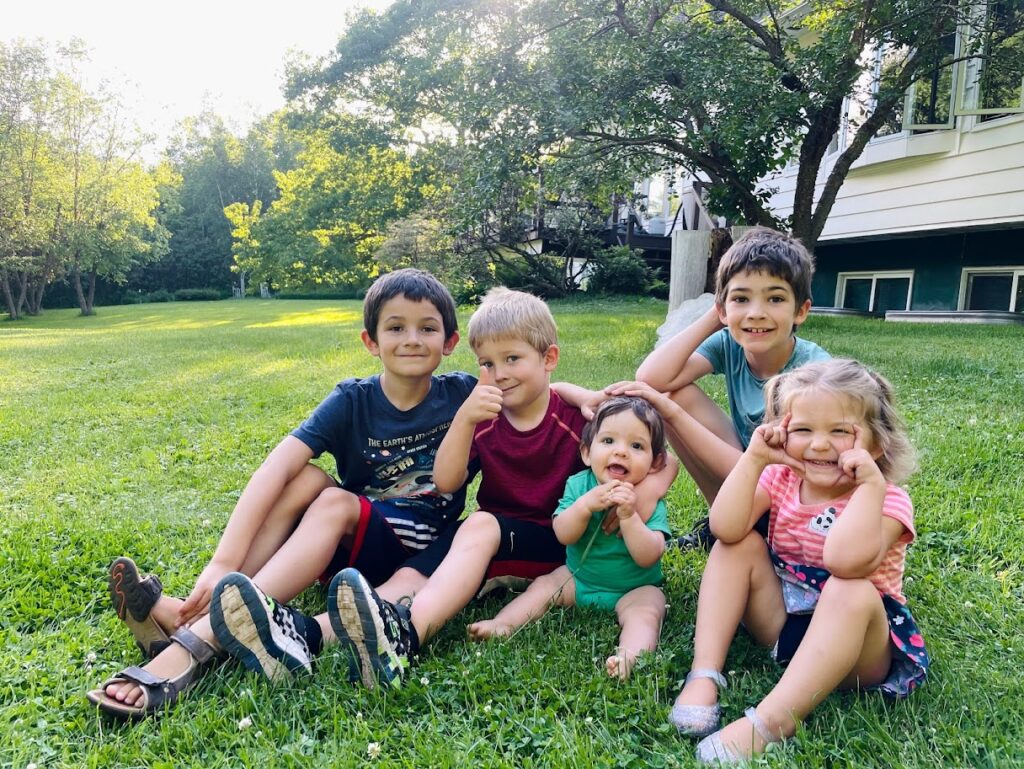
However, do you think most twelve year olds in your local schools are still curious? Are the ten year olds still excited about what they are learning? How about the eight year olds? I sincerely hope so – but I’m doubtful.
If middle schoolers or late elementary schoolers are no longer curious, no longer interested in learning, no longer excited and eager about this big beautiful world – what has gone wrong?
You could argue that that is simply what happens to kids, that it’s a normal part of growth and development, but I don’t buy it. Neither did Einstein. “I have no special talents. I am only passionately curious,” he claimed. I think most would disagree with him and say that yes he did have some remarkable talents, but clearly he considered curiosity and wonder to be key to his success.
Read about Da Vinci and you’ll see the same attitude. He pursued knowledge of physics, engineering, math, anatomy, hydraulics, and more with a relentless, passionate curiosity and it led him to discoveries that were often hundreds of years before their time. It is not a rule of nature that kids must lose their joy of learning, that teenagers must be apathetic, and that no one above the age of six can wonder why the sky is blue.
If our system of education, whether at home or elsewhere, is killing our children’s curiosity and wonder, that is a tragedy that should cause us to seriously rethink this “education.”

Charlotte Mason agreed. She argued that children come into this world as complete persons, with an intelligent mind eager for information, and that one of our jobs as educators is to simply refrain from squashing that innate desire for knowledge.
“The question is not, – how much does the youth know? when he has finished his education – but how much does he care? and about how many orders of things does he care? In fact, how large is the room in which he finds his feet set? and, therefore, how full is the life he has before him?” – CM
Note that it is the caring, the wondering, the interest and curiosity that brings fullness to our life, as Mason said. I want my children to leave high school not simply with a head stuffed with facts, but with a heart that is full. I want them not just to know, but to care about many things. If we care – if we are curious – we will have the intrinsic motivation to do what is necessary to continue learning for the rest of our lives.
So how can we do this? How can we keep that fire burning and encourage a child’s natural curiosity, their God-given inborn desire to know all the things?
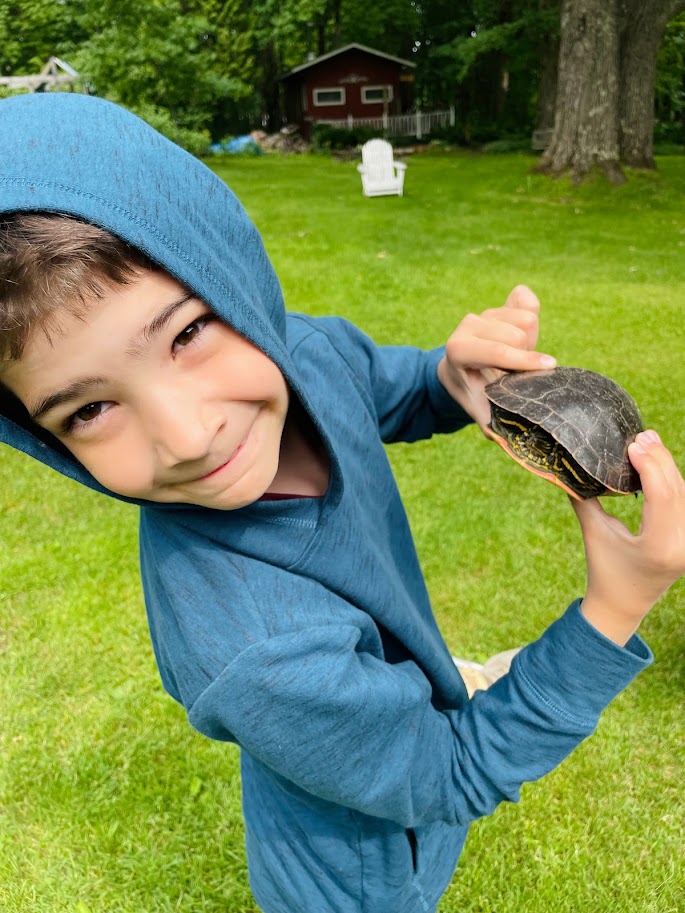
Clearly I do not have all the answers, nor do I believe there is a fool-proof formula for this or any other aspect of parenting that will guarantee perfect results! These are people we are talking about, not numbers to be plugged into an equation. Plus, my own children still have many years before they graduate high school so the result of their education is yet to be seen!
However, I do believe that this idea of curiosity is worth some thought; and there are a few simple things have helped our children so far. When I spend time thinking and observing our own precious, quirky, normal-yet-extraordinary children, I see that they are happiest when they have plenty of ideas, time, and (little or) no screens. Here are three simple ways to encourage curiosity!
Three Ways to Encourage Curiosity
Way No. 1: Ideas
If education is the lighting of a fire, that fire must have some fuel to burn. This fuel which the mind needs is ideas, most often found in good books. No one has ever fallen in love with or been inspired by an isolated fact. Facts and dates in their contexts can be part of an idea, or can be used to gain the skill needed for the outworking of an idea, but in and of themselves they are meaningless. This, I believe, is where both unschooling and traditional schooling (and homeschooling that imitates traditional school) fall short.
Unschooling sounds appealing – my children will simply learn what they need to know on their own, whenever they are ready! – but, depending on how it is implemented, it can do the child a disservice by not offering them a wider range of ideas than they would naturally seek. Charlotte Mason spoke often of presenting children with a “feast” of ideas, from which they could internalize those which were needed for their particular growth and development. Not everything that you present to your child will be something that they immediately love and want to know more of, and that is okay! You don’t know what will catch their fancy until it does.
I have seen this in our own homeschool: all of the phases of varying “interests” that our children have moved through have begun with a small spark of curiosity about something that we read as part of our school work or were exposed to in our daily life. Big Brother has loved and studied geography extensively for several years now, but he never would have even known about it if we had not introduced the ideas of globes and maps to him.
Children need to be offered many living ideas, in every worthy subject under the sun, so that they have a chance of finding one that speaks to them and so that they can marvel in the vast beauty of our intricate world.
Traditional school also falls short of this ideal because it relies so heavily on textbooks and workbooks that are devoid of any inspiring ideas. When was the last time a child picked up a textbook and begged you to read “just one more chapter!”? How many times in college did you have a hard time putting down your textbook because it was just so fascinating? Less than none, I would bet.
The tragedy here is that the information these books contain is not dry and boring; but the way in which they are presented sucks all the life out of them. The authors have already decided what the main points are, what the most important facts are, what the conclusion should be, and summarized these neatly in such a way that there’s no need for the reader to do any thinking or wondering themselves.
Way No. 2: Time
This was, and remains, one of the main reasons we chose to homeschool. Once our children have found ideas that speak to them, they must have time to explore these further. With homeschooling, our kids’ time is not wasted standing in line or schlepping to and from classes or waiting for other kids to finish their work. Our school work is efficient (as least, as efficient as you can be with a baby on your hip!) and finished in a fraction of the time that the public school takes. Because of this, they do have hours each and every day to play or pursue their own interests.
Furthermore, they need unstructured, unplanned time in which to be bored. Boredom is a gift that our generation has largely rejected. Creativity is born in boredom, in the empty time where grownups do not command or instruct or entertain. Much of our day is indeed structured with projects, or school work, or “reading time” or “outside time”, etc; but it’s also important for the children to have time where I don’t give them an idea and don’t tell them what to do, to allow them to exercise their own imaginations and creativity – to let them think about and internalize the ideas they have heard.
This free, unstructured time is when our boys have created imaginary countries, drawn detailed maps of every country under the sun, built skyscrapers out of cardboard, planned elaborate battles with their animal figurines, studied and replicated the flags of their favorite countries, created a flag for our family, compared agates and crystals, acted out stories in imaginary worlds, and so much more.
Way No. 3: No Screens
This, I’m convinced, is the key. Why? Because if screens are an option, my kids – and yours – will choose them every time. To take it a step further, if screens are not an option at the moment, but your child has hope that it could maybe be an option if he just begs hard enough, he will try it. Ask me how I know! With our children, there seems to be a tipping point.
When we watch one short show a day (or less), the kids do pretty well. When it creeps up to two, or three in a day, I start to notice them asking about it more and more. Not only is more of their free play time wasted in watching their shows, but they spend more time thinking about watching more shows and distracted from more creative pursuits. I can’t speak for every child or every family, but this is what I see with our boys.
Try it yourself! Take a week or two where you drastically cut back on screen time, whatever that may look like for your family, and see what happens. Maybe it will make a difference, maybe it won’t. And believe me, I know that it’s a hard issue! I am with these five little buggers each and every day, 24/7, all year long*, and sometimes I just desperately need some time with no one touching me or talking to me or asking me questions or telling me to “watch this trick!” Screen time gives me that break, and it’s lovely.
However, if it starts to creep into the rest of their day so that they lose their ability to concentrate on their play and entertain themselves… then it’s not so lovely anymore. We have seasons of life where we use more screen time because Mom needs it, and I don’t feel guilty about it. An ideal childhood might have no screen time ever, but this is real life, and oftentimes we all have to make do with circumstances that are far less than perfect!
However, in the seasons when Mom and Dad have the capacity to cut back on screen time, we absolutely see happier, more creative children.
* this is an exaggeration. My husband is incredibly helpful and I regularly get pockets of time to myself. However, it’s still a lot of time together with the kids, which is both wonderful and exhausting.
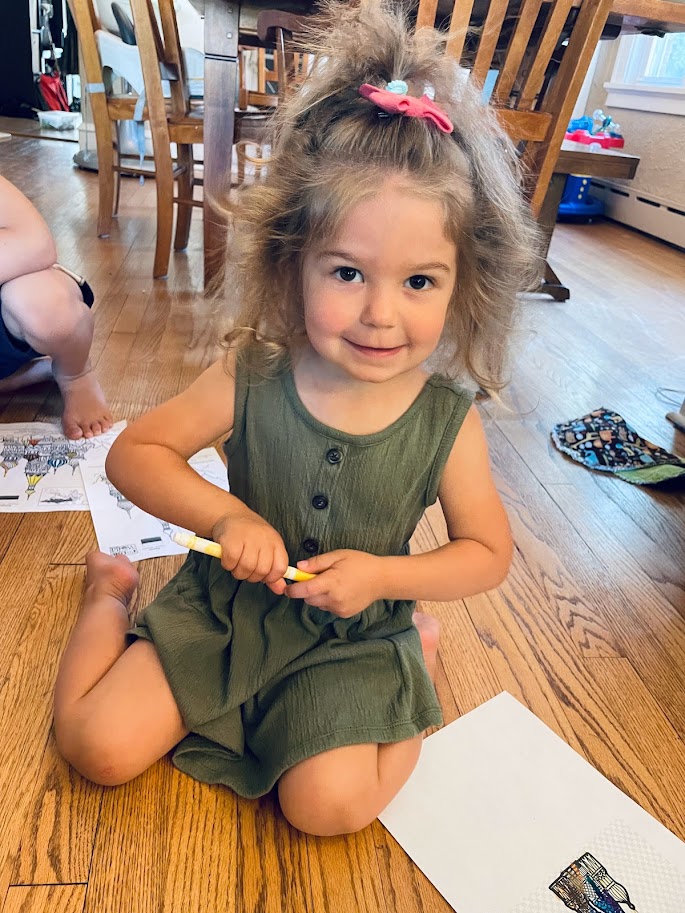
Finally, I cannot talk about this without addressing the issue of my own screen time. I refuse to ask my children to do something that I cannot do myself. Can I expect them to have good attitudes in hard times if I myself am complaining and grumbling? Can I expect them to obey mom and dad if I am not obeying God? Nope and nope.
I also cannot ask our children to stop using screens (and stop asking about them) if they see me on my phone all day long, enjoying my own unlimited screen time. Yes, adults do have privileges that children do not have, due to their (hopefully greater) maturity and life experience, but if we are going to cut down on screen time in favor of more creative and mindful pursuits, I would like to set the example and join them.
I do not claim that every child has the potential to become another Da Vinci (though Curious George might be a little more attainable). But I do believe strongly that every single child has within her some unique ability, gift, or talent – a little seed that is just waiting for a chance to blossom. Some children, tragically, never get that chance. They are not exposed to enough living ideas, or their time is frittered away with useless busy work, or screens consume their lives until they forget they once were curious about the rest of the world.
Every mother believes her own children are amazing, and I hope not to brag too much, but I can’t write this post without sharing some of the things our children have learned on their own.
Little Brother (just turned 6) doesn’t have many independent interests yet but he has diligently absorbed everything his older brothers are learning. He recently showed me a map of Africa he had traced and explained to me how Lesotho (which he correctly pronounced Leh-soo-too) is completely encircled by South Africa, and Eswatini is almost enclosed by it too but is also touching a little bit of Mozambique. I then went and looked it up on Google Maps (because I had no idea what he was talking about) and he was entirely correct. For a child who cannot yet read, this is astounding to me!
Middle Brother knows all the map things and has also recently found his own particular interest in rocks and geology. He has sent several batches of rocks through his rock tumbler, knows what sort of grit to use and for how long each time, and spends long hours sorting his rocks by color or by name. He also loves building block structures that reach the ceiling, quite literally – each one more elaborate than the last.
Big Brother had a phase of interest in anatomy recently in which he produced piles of detailed drawings of bones and muscles, all correctly labeled. Now he’s back on to geography and can identify any country in the world based on its shape or flag or location. His drawings continue to amaze me and I can’t wait to see where he takes this interest.
A Summary Of Key Points Because This is Getting Very Long:
- None of this is a part of our “regular” school work or directed by me in any way.
- Our kids are not uniquely talented; these simple ways to encourage curiosity can work with anyone.
- Every child is born with a thirst for understanding and the potential to absorb huge quantities of knowledge.
- It’s worth taking the time to invest in your child’s interests and hobbies and passions – whatever that may look like in your own unique family.
- Give your kids a feast of interesting ideas, lots of free time to process & explore those ideas, limit their screen time, and see what happens!
Someday, they’ll blow us all away.
“The child is already furnished with the desire for knowledge (curiosity); with the power to apprehend knowledge (attention); with powers of mind to deal with knowledge without aid from without – such as imagination, reflection, judgment; with innate interest in all knowledge that he needs as a human being… Our part is to remove obstructions and to give stimulus and guidance to the child who is trying to get into touch with the universe of things and thoughts which belong to him.” – Charlotte Mason
Originally written June 20 2022


